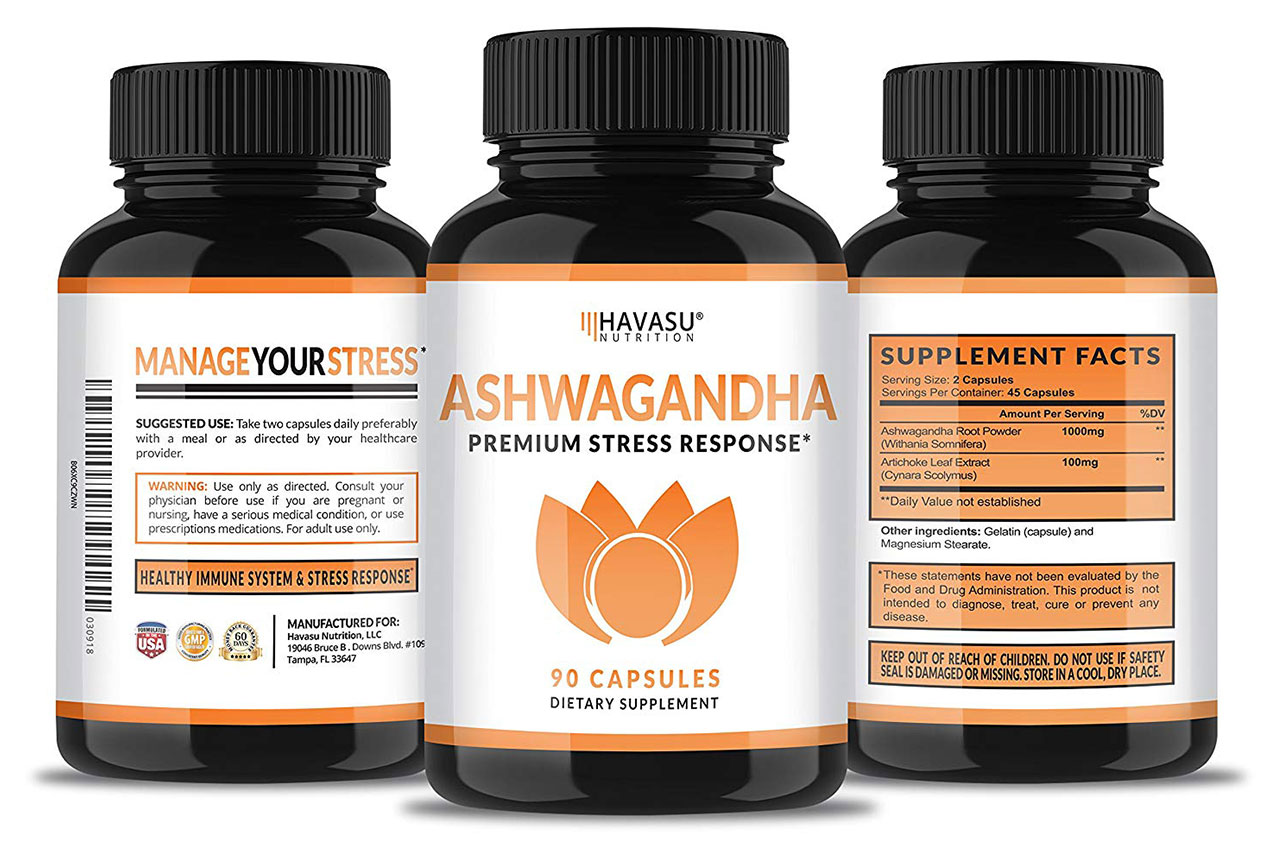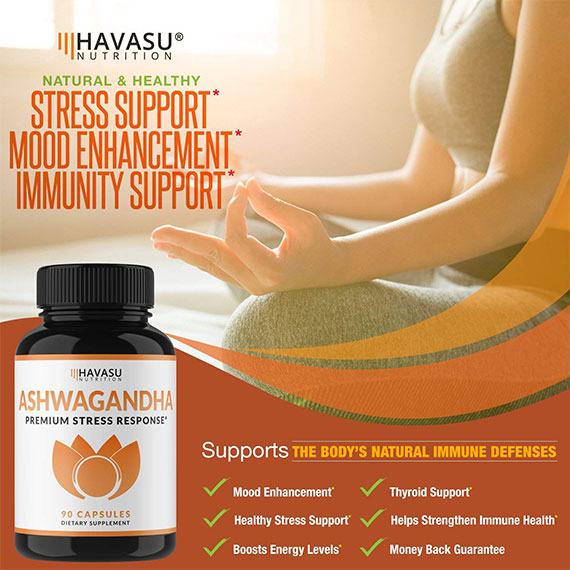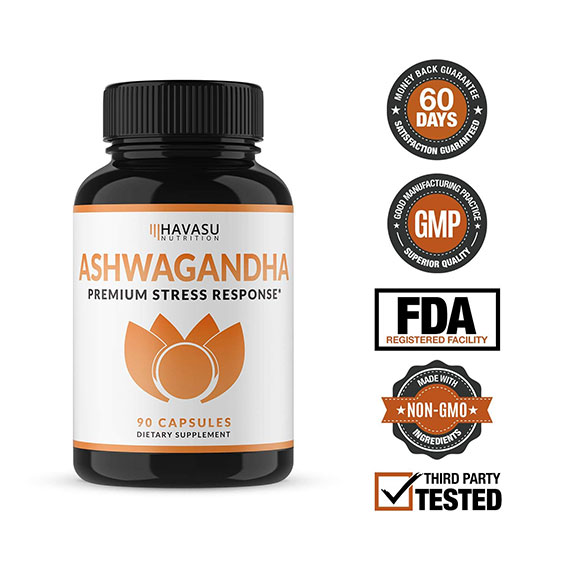This herb has been considered the fountain of youth for a very long time, but it is also scientifically proven to be an adaptogen.
Many of its popular properties prove that it is the most potent and effective ayurvedan herb.
What Do We Know About Ashwagandha?
This herb, referred to as Ashwagandha, is originally named Withania Somnifera and is from the Solanaceae family.
The plant is used as a medical herb in ayurvedic medicine.
What Does The Extract Contain?
The main ingredient in the extracts of Withania Somnifera are alkaloids and steroidal lactones, including tropine and cuscohygrine. The leaves contain steroidal lactones, foranolides and, above all, vitapherin A (withaferin A), which is the first vinoid isolated from W. Somnifera, and is one of the most studied substances in its composition with a confirmed anticancer effect.
What Should You Know About Ashwagandha And Its Ingredients?
More than 20 vitaminides, alkaloids and steroidal lactones are found in the ashwagandha extract (whole plant). Vitapharyin A is best studied, but only in cancer.
It is known that the main routes of action of the extract are:
- peripheral-central nervous system – adaptogenic fetus, rejuvenation
- immune system – suppression, inhibition
- cardiovascular-respiratory-adaptive effect
- blood system – suppresses capillary formation, lowers temperature
- lymph – normalizes the number of immune cells.
What Is It Used For And What Are The Herb’s Benefits?
In Ayurveda, this herb is classified as a lily (rejuvenating) and is expected to improve physical and mental health, renew the body in disease conditions and increase life expectancy. Having a wide range of effects, it is used to treat almost all diseases that affect human health.
In Sanskrit, Ashwaganda, the Indian name for Withania Somnifera, translates as a “horse smell”. Most likely, this stems from the specific odor of the root of the herb.
The Latin Somnifera – “sleeping” – is associated with the fact that Ashwaganda is used in the fight against stress. Some herbalists call it “Indian Ginseng” by comparing it with the similar uses of Chinese ginseng in the treatment of many different ailments.
Ayurvedic medicine uses all parts of Withania somnifera – leaves, roots and fruits as part of home medicine (free, without prescription). They often brew roots in milk to eliminate their unpleasant smell and some unwanted ingredients.
Fruits are used as a thickening agent for milk cheese. The research behind Ashwagandha makes it the best known and researched herb within the framework of traditional Indian medicine.
Most of the production is for own use, a smaller percentage is for export. However, India is one of the largest exporters of herbal drug Fromania Somnifera.
Particularly useful in central nervous system diseases, especially epilepsy treatment, stress reduction, neurodegenerative diseases such as Alzheimer’s and Parkinson’s syndromes, dyskinesia, cerebral ischemia, and the control of addiction to drugs and painkillers.
Western (EU, US) researchers support the multipharmaceutical application of Ashwagandha as: anti-inflammatory, immune modulating, anti-stress agent to whole plant extracts, and certain applications for leaf and root extracts.
It is known about the anticancer effect of substances in the root extract of Withania somnifera, including anticancer (killing cancer cells) and anti-seizure.
It is currently being used as an experimental agent in chemotherapy alone and in parallel with cancer cell toxins – an improvement in animal side effects is available.
Additionally, when taken from animals, an improvement in radiation therapy and the control of its side effects is observed. Many experts believe that Ashwagandha or some of its main active substances will be largely included in future cancer treatment.
For this purpose, tests with people are to be performed. Recently, there has been talk about the application of the Ashwagandha in sports, where there are already studies with untrained people.
In Ayurveda as a rasayana type, the Ashwagandha elixir is expected to improve the human body in general, improve health and prolong life. Adaptive properties are also attributed to physiological and psychological stress conditions, including chronic.
Ashwagandha helps by regulating imbalances by influencing the neuroendocrine and immune system.
How Does The Ashwagandha Extract Work?
Researches show that Ashwagandha has the following properties and effects
- anti-inflammatory
- antitumor
- anti-stress effect, adaptogen
- antioxidant
- immunomodulatory effect
- hemopoietic, suppressive
- rejuvenating
- impact on endocrine system
- impact on the cardiovascular system
- effects on the central nervous system.
However, the mechanisms of impact are not fully understood. Toxicological tests show that Ashwagandha and its extracts are generally safe.
Proven Benefits For People
- Improves the general condition as an antioxidant and an adaptogen – a number of animal studies and pilots with humans confirm these properties of Ashwagandha extract. Of course, more research is needed to validate and better understand both the dose-response effect and the modes of action on human physiology.
- Improves neuromuscular control and slows the onset of fatigue – Withania Somnifera extract taken at a dose of 500 mg / day for 8 weeks in untreated healthy people subjected to a variety of physical tests indicate its ability to delay the onset of fatigue, thus prolonging the time to reach of exhaustion and the maintenance of force in exhausting workouts.
- Improves functional performance in non-training subjects undergoing training tests – maximum and average strength, realized speed, oxygen consumption. In a maximum speed, mean absolute and relative strength study, an increase of 2.9%, 8.8% and 10.1% respectively was observed in the placebo group. The maximum oxygen consumption also increased by 6.8% in high-intensity physical tests, but there is no significant effect on balance and blood pressure.
Proven Effects On Animals
- Fight cancer: Withania Somnifera shows tremendous potential as a safe, effective and low-toxic neoplastic agent. More research is needed to find out whether Withania Somnifera can repeat success in humans as well as to determine the dosage to achieve the same effects. Potential benefits of Withania in combination with radiology and chemotherapy talk about potential in integrative oncology care.
- Kills Cancer Cells: Ash extract of Ashwagandha and Withanone causes selective death of cancer cells by inducing ROS signaling and is a potential agent that can be used in ROS-mediated cancer chemotherapy.
- Potential for fighting gout: Pilot study: Treatment with W. Somnifera powder of root (500/1000 mg / kg body weight) leads to normalization of leukocyte count in lymph. W. Somnifera also showed an analgesic effect and antipyretic (temperature-limiting) effect in the absence of gastric damage at different doses in rats. The results show evidence of the inhibitory effect of Ashwagandha on the complications in swollen areas and the widening of the inflammatory response without causing damage to the gastrointestinal tract.
- Antimicrobial and antifungal properties: Asparagillus flavus, Fusarium oxysporum, F. verticilloides, and antibacterial activity against Clavibacter michiganensis have demonstrated potent antimicrobial activity against phytopathogenic fungi and bacteria. michiganensis. WSG is an acidic, non-toxic protease inhibitor. The results are encouraging and new studies are expected to be conducted on WSG as a potential therapeutic agent for antifungal activity.
- There is an immunomodulatory, immunosuppressive effect: Aqueous suspension of Withania Somnifera powder is tested in vivo (rats) and in vitro for immunomodulatory capabilities. The results are an immunosuppressive effect of W. Somnifera powder. More research is needed to define a particular substance that has the potential to be used in drugs for inflammatory diseases (e.g. allergies).
- Antioxidant, adaptogen: in vivo studies in mice subjected to stress. The dissection of cell cultures from nerve and brain cells gives a positive analysis of the antioxidant and adaptogenic properties of the plant.
- Alzheimer’s dementia success: new, unique models for the impact of the dementia process are revealed. However, studies are still at an early stage.
Side Effects Of Ashwagandha
Generally considered safe, for the Ashwaganda extract there is only one documented case of intoxication. This is about thyrotoxicosis in a young woman (32 years) who is taking ASV to control the symptoms of chronic fatigue.
In the first week of dosing at normal doses, the woman did not feel any symptoms but, after increasing the dose (overdose), developed symptoms of thyroid intoxication. Symptoms disappeared after discontinuation.
There is no clear link as to the use of Ashwagandha, but caution should be exercised when taken from people with thyroid disease. Animal studies suggest that taking the herb may increase the production of thyroid hormones. Thyroid poisoning may be a potentially dangerous side effect of Ashwagandha, if consumed excessively.
Who Shouldn’t Take Ashwagandha And What Should We Avoid Combining It With?
- Pregnant and lactating women without recommendation from a doctor.
- Babies and toddlers without a pediatrician recommendation.
- People with thyroid disease.
- Avoid taking in combination with medicines that affect immunity.
Recommended Dosages And Ways Of Intake
Studies with humans include doses of 500 mg to 1000 mg / day of dry standardized extract of Withania Somnifera for periods of 20 days to 8 weeks. Take as prescribed on the label and, if not, divide your dose into 2 doses on an empty stomach, one morning and evening.
Which Supplements Contain Ashwagandha?
Ashwagandha is incorporated into adaptogens, herbal antioxidants, specialized additives for concomitant treatment of neurodegenerative and cancers. It is usually combined with other Ayurvedic herbs or combined multi-ginseng formulas.
MeanMuscles Recommendation: Havasu Nutrition Premium Ashwagandha 1000mg
Havasu Nutrition Premium Ashwagandha
1000mg – Natural & Healthy Stress Support & Mood Enhancer Support – Artichoke For Enhanced Benefits – Energy Support, 90 Count





